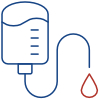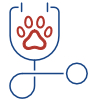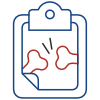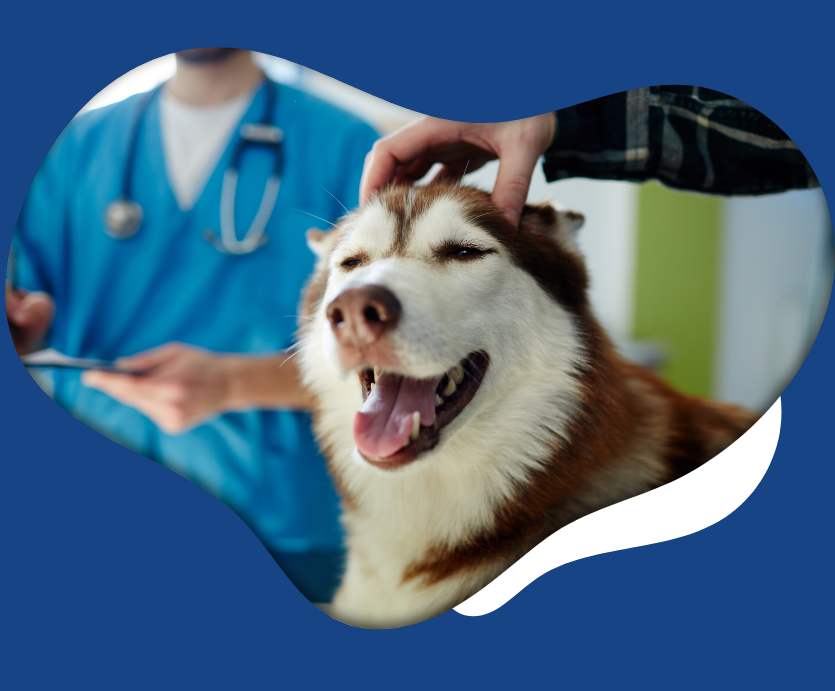Frequently Asked Questions
Comprehensive Pet Care for Every Emergency Situation
When your beloved pets need care, trust the After Hours Vet Clinic in the Greater Wellington Area. Our team of compassionate and experienced staff is dedicated to providing the highest level of care for pets of all breeds, ages, and types.
Frequently Asked Questions
Comprehensive Pet Care for Every Emergency Situation
When your beloved pets need care, trust the After Hours Vet Clinic in the Greater Wellington Area. Our team of compassionate and experienced staff is dedicated to providing the highest level of care for pets of all breeds, ages, and types.

Emergencies
Receive top-quality critical care when unexpected situations arise, ensuring your pet gets the urgent attention they need.

Urgent Care
For injuries or illnesses that simply cannot wait.

X-Rays
Our on-site x-rays provide immediate diagnosis of fractures, stones, foreign ingestions, and more, offering you reassurance and confidence in the diagnostic process.

Treatment and Hospitalisation
Care starts immediately; we provide care if your pet needs to stay overnight.

Diagnostics and Testing
Done right in our hospital for less wait time and fast results.

Point-of-Care Ultrasound
Non-invasive imaging for soft tissues with fast, same-day results, providing quick and accurate assessments.

Surgery
A experienced veterinarian is on-site for emergency operations.

End-of-Life Care
Compassionate care during the most challenging time. We understand the sensitivity of this situation, and we are here to support you and your pet every step of the way.
General Information
What are your after-hours emergency clinic hours?
Our clinic operates from 7:00 PM to 8:00 AM Monday through Friday and closes at 9:00 AM on Saturdays.
Over the weekend, we are open from 12pm Saturday until 8am Monday morning.
We are open 24 hours on public holidays!
We are here to provide care when your regular veterinarian is closed.
Do I need to call before coming in?
Yes, we recommend calling ahead. This allows us to prepare for your arrival and provide guidance on handling your pet’s condition on the way to the clinic.
However, we understand that emergencies can happen, so you can still bring your pet directly to us if needed. If on your way, then even ask for someone else to call on your behalf to advise that you are on your way. It always helps if we know what’s about to arrive so we have the team ready to help as soon as you get here.
What should I bring to the clinic for an emergency visit?
Please bring any medications your pet is currently taking and a form of payment.
Ensure your pet is secured in a carrier or on a leash for their safety.
Even photos of medications that you have at home can be helpful.
What can I expect when I arrive at the clinic?
Upon arrival,Upon arrival, your pet will be triaged in order for us to prioritise the most urgent cases first. In life-threatening situations, immediate care will be provided.
We will give you an estimated wait time for less urgent cases based on the severity of other cases.
Do you offer pet first-aid advice over the phone?
We offer a telephone triage assessment of your pet and sometimes even ask for you to email us photos or videos of the things that are specifically concerning you such as wounds, skin problems or unusual behaviour or movements. We can then advise what you could try at home or make a recommendation that we see your pet.
Payment and Insurance
How much does an emergency visit cost?
We’ll provide a cost estimate for treatment during the consultation. However, expect higher fees for after-hours care compared to regular vet visits.
- Base Consultation
- 7am – 11.30pm: $180 (associated clinic fee)
- Overnight: $270
- Public Holidays: $270
Non associated clinic surcharge is an additional $60 on top of the usual consultation fee
How do you handle payment?
We will advise you of the consultation costs when you call. Full payment is required at the time of consultation. We accept major credit cards, debit cards, and EFTPOS. If you have pet insurance, we can help provide the necessary documentation for your claim. We also offer payment plan options through QCard or AfterPay, ensuring you have the financial flexibility you need during a stressful time.
As part of the consultation process, a treatment plan and an estimate of costs will be formulated. Should your pet need to be admitted into the hospital, a 50% deposit of the proposed expenses is required on admission. The balance must be paid at the time of discharge. If there are necessary changes to treatment plans, you will be called, and any additional costs will be discussed in full with you before proceeding.
Please discuss any concerns regarding costs and payment policies with our staff.
Can I apply for financial assistance in an emergency?
We are unable to offer credit but accept Afterpay. If finances are a concern then please discuss this with us during your visit.
Can I use my pet insurance at your clinic?
We provide the necessary paperwork required for your insurance claims. Payments are made directly with us and then you lodge your claim for speedy reimbursement.
Emergency Services
What types of emergencies do you handle?
We handle a wide variety of emergencies, including trauma, poisoning, difficulty breathing, seizures, severe vomiting or diarrhoea, and complications related to labour and delivery. If you’re uncertain about your pet’s condition, it’s always best to call us for guidance. Rest assured, we are fully equipped to manage any emergency your pet may encounter
Do you offer euthanasia services?
Yes, if it is the right time for euthanasia then we provide compassionate end-of-life care.costs will depend on whether you would like us to arrange cremation and whether you would like to have your pet’s ashes returned. We will be able to give you a cost estimate if you call.Our team will guide you through the process and offer support during these difficult times.
Do you offer emergency surgery?
We are well equipped to manage most surgical emergencies including but not limited to foreign body removals, wound repairs, twisted stomachs and cesarean sections.
How long will an emergency visit take?
The duration of your visit will depend on the severity of your pet’s condition and the number of other emergencies being treated. While we strive to treat pets as quickly as possible, more critical cases may take priority. We understand that visiting an after-hours vet can be a stressful experience for both you and your pet, and we will always keep you informed regarding timing.
What happens if my pet needs to stay overnight?
If your pet requires overnight care, we will closely monitor and treat their condition.You will be responsible for picking your pet up before we close in the mornings and transferring them to their regular clinic if advised. All clinical records are sent straight through to your usual clinic when your pet is discharged so they are kept up to date with what has been happening and what the plan is.
Pet Care Advice
What should I do if my pet has eaten something toxic?
If your pet has ingested something potentially harmful, contact us immediately. We may advise you to come in immediately or administer first aid at home before your arrival. Common toxins include human foods such as chocolate, grapes, raisins, onions, macadamia nuts, xylitol, plants such as karaka berries, medications such as ibuprofen and paracetamol. Compost, mouldy foods, rat bait and slug bait are also very commonly encountered toxicities.
How can I tell if my pet's condition is an emergency?
Emergency signs include difficulty breathing, uncontrolled bleeding, seizures, sudden collapse, inability to stand, vomiting or diarrhoea with blood, difficulty urinating, pale gums and trauma, such as being hit by a car. If you’re unsure, it’s always best to call us for guidance.
How do I transport my injured pet safely?
If your pet is injured, handle it gently and avoid putting pressure on painful areas. Placing it in a carrier is an option. For larger pets, use a blanket or towel as a makeshift stretcher to carry them if necessary. Keep your pet calm and avoid sudden movements while transporting it to the clinic. Please call our clinic if you have any concerns or questions.
Let us know once you have arrived and our staff can come and assist getting your pet out of the car and bringing them in safely if needed.
How can I prevent future emergencies?
While accidents can happen, you can reduce risks by keeping toxic substances out of reach, ensuring your pet is up to date on vaccinations, supervising them outdoors, and maintaining regular veterinary visits. Consult your regular vet for prevention advice tailored to your pet’s breed and lifestyle.
What should I do if my pet is bitten by another animal?
Bite wounds can be severe due to the risk of infection or internal damage. It’s essential to bring your pet in for treatment as soon as possible. Keep the bite wound clean and minimise movement until you arrive at the clinic.
Do you offer follow-up care after the emergency visit?
We provide initial emergency treatment and stabilisation. For ongoing care, we will refer you to your regular veterinarian for follow-up treatment, ensuring continuity in your pet’s healthcare.
Special Circumstances
Can I visit or stay with my pet during treatment?
If your pet is staying with us over weekends then we will do our best to facilitate visits.
What if I can't transport my pet to the clinic?
Most emergencies require immediate, in-person care, so we recommend arranging transportation for your pet as quickly as possible.
Do you offer house calls?
Please note that we are unable to offer house calls as our team is needed in the clinic.
Can I request a specific veterinarian during an emergency?
Given the urgent nature of emergency care, we cannot guarantee that a specific veterinarian will be available. However, all our veterinarians are highly qualified and experienced in managing emergencies, ensuring your pet receives the best possible care.
Can I get a prescription refill during after-hours?
After-hours clinics primarily focus on emergencies, so we may only be able to provide prescription refills if they relate directly to an emergency situation. For routine medication refills, we recommend contacting your regular veterinarian.
Do you offer follow-up care after the emergency visit?
We provide initial emergency treatment and stabilisation. For ongoing care, we will refer you to your regular veterinarian for follow-up treatment, ensuring continuity in your pet’s healthcare.
I’m taking my dog to boarding kennels or dropping the cat at a cattery and I just realised my pet needs their annual vaccination. Are you able to do that?
Due to us being an after hours emergency clinic, we do not offer routine vaccinations.
Exotic and Stray Animals
Can I bring my exotic pet (bird, reptile, etc.) to the emergency clinic?
We treat a range of pets, including birds, reptiles, and small mammals. However, it’s important to call ahead to confirm that a veterinarian experienced in exotic animal care is available at the time of your visit. This ensures we can provide the best possible care for your pet.
Do you treat stray or wildlife animals?
We have an obligation to treat injured or sick stray animals and wildlife so you are welcome to contact us. We arrange ongoing care via the SPCA or The Nest for native birds. We are unable to accept stray animals unless they are sick or injured.
Aftercare and Follow-Up
Will you share my pet's records with my regular vet?
We will provide you or your regular veterinarian with a detailed report of your pet’s emergency treatment after your visit. This report will include the diagnosis, treatment provided, and any recommended follow-up care, ensuring continuity and a smooth transition back to your vet for ongoing care.
Do you offer follow-up care after the emergency visit?
Follow up care is generally done through your regular clinic
Dog-Specific Emergencies
Frequently Asked QuestionsOur FAQ section on dog-specific emergencies provides quick answers to common questions, helping you recognise when urgent care is needed. Learn what to do in critical situations to keep your dog safe and healthy.

What should I do if my dog is hit by a car?
Bring your dog to the clinic immediately, even if it appears fine. Internal injuries are not always apparent but can be life-threatening. Support your dog’s body carefully during transport and avoid moving it more than necessary.
What should I do if my dog is having trouble breathing?
Breathing difficulties are a serious emergency. Keep your dog calm and minimise handling. Bring them to the clinic immediately, and call us while you’re on the way so we can be prepared for your arrival.
What should I do if my dog is bleeding?
Apply gentle pressure with a clean cloth or bandage for heavy bleeding, keeping your dog as calm as possible. Transport your dog to the clinic immediately. Avoid cleaning or stitching the wound yourself, as this can lead to infection or worsen the injury.
My dog has been stung by a bee – should I be worried?
While a bee sting is generally minor, some dogs may experience an allergic reaction, resulting in swelling, hives, breathing difficulties, or collapse. If you notice these signs, bring your dog to the clinic right away for treatment.
What should I do if my dog is overheating?
Heat stress or heat stroke can be life-threatening. Move your dog to a cool, shaded area, offer them water, and place cool (not cold) towels on their body. Avoid over cooling them. Bring your dog to the clinic immediately for further care.
My dog ate chocolate – how urgent is this?
Call us to advise what sort of chocolate and roughly how much they have ingested. Let us know the approximate weight of your dog. We can then advise if you need to bring your dog in or not. Generally speaking, the darker varieties of chocolate carry the higher risks of being problematic.
My dog is limping – should I bring them in?
Limping can indicate anything from a sprain to a fracture. If the limping persists, is accompanied by swelling, or your dog refuses to put weight on the leg, it’s best to see a vet. If your dog appears to be in pain, bring it in for a thorough assessment.
What should I do if my dog is having a seizure?
During a seizure, ensure your dog is safe and clear any objects that could cause injury. Do not attempt to hold them down. Time the seizure, and contact the clinic straight away. Seizures lasting more than a few minutes require urgent veterinary attention.
What should I do if my dog has been vomiting or has diarrhoea?
If your dog’s vomiting or diarrhea is persistent, contains blood, or is accompanied by other symptoms such as lethargy or a refusal to eat. Contact the clinic immediately. We can advise you on whether an emergency visit is required.
What should I do if my dog is in labour and struggling?
If your dog is in labour and struggling to deliver a puppy after 30 minutes of active straining or more than two hours pass between puppies, this could indicate complications. Contact the clinic for immediate advice or to arrange emergency care.
Cat-Specific Emergencies
Frequently Asked QuestionsOur FAQ section on cat-specific emergencies provides quick answers to common questions, helping you recognise when urgent care is needed. Learn what to do in critical situations to keep your cat safe and healthy.

What should I do if my cat has been hit by a car?
Even if your cat seems uninjured, internal damage can occur without visible signs. Carefully transport your cat to the clinic as soon as possible. Use a towel or blanket to support their body and reduce movement. Call us en route to ensure we’re prepared when you arrive.
My cat is having trouble breathing – is this an emergency?
Yes, difficulty breathing in cats is a serious emergency. Keep your cat calm and quiet while transporting them to the clinic. Avoid excessive handling and call ahead for immediate advice. Prompt treatment is essential.
What should I do if my cat has ingested something poisonous?
Common toxic ingestions in cats arise from lilies and any part of the lily plant can be toxic. Cats often ingest household items such as string, wool , hair ties, Nerf gun pellets or ear plugs all of which may cause problems. Please call us to advise what your cat may have ingested and we will recommend whether we need to see them or not.
My cat is limping or not putting weight on their leg, should I bring them in?
If your cat is limping, especially if it’s accompanied by swelling, pain, or a reluctance to move, it’s best to have it examined.
What should I do if my cat is bleeding?
If the bleeding is significant, apply gentle pressure with a clean cloth or bandage and seek emergency veterinary care. Keep your cat as still as possible while transporting it to the clinic. If the bleeding is from a small cut, monitor it closely and contact us if it doesn’t stop or worsens.
My cat is vomiting or has diarrhea – is this urgent?
Occasional vomiting or diarrhea can happen, but if it’s frequent, contains blood, or is accompanied by lethargy, dehydration or a loss of appetite. Vomiting and diarrhoea can be a sign of many things. It’s essential to seek veterinary care. Cats can deteriorate quickly, so if unsure, call the clinic for advice.
What should I do if my cat has collapsed or is unresponsive?
Collapse or unresponsiveness is an emergency. Carefully transport your cat to the clinic immediately, avoiding excessive handling. Call ahead so we can be prepared for your arrival. Time is crucial in these situations.
My cat is struggling to urinate – is this an emergency?
Yes, straining to urinate or producing little to no urine can indicate a urinary blockage, which is life-threatening. Male cats are particularly prone to this condition. If you notice your cat in distress while trying to urinate, bring them in immediately.
What should I do if my cat has been in a fight?
Cats are prone to developing abscesses from fight wounds. Even if the injury looks minor, infection can set in quickly. It’s best to examine your cat, as they may need antibiotics or wound care to prevent complications.
What should I do if my cat has been stung by a bee or bitten by an insect?
In most cases, stings or insect bites cause mild swelling or irritation. However, if your cat shows signs of an allergic reaction, such as difficulty breathing, vomiting, or severe swelling, bring it in immediately for treatment.
What should I do if my cat is experiencing seizures?
If your cat is having a seizure, ensure it’s in a safe space where it won’t injure itself. Do not attempt to hold it down. Time the seizure and call the clinic immediately. Urgent treatment is required if it lasts longer than a couple of minutes.
If able to then record some of the seizure episode on your phone to show us what was happening when you arrive
Should I be concerned? My cat is in labour and seems to be struggling?
If your cat is in labour and has been straining for more than 20 minutes without delivering a kitten, or there is a gap of over two hours between kittens, this may indicate complications. Contact the clinic immediately for advice or to bring your cat in for emergency care.
Do you offer housecalls?
Unfortunately, we are unable to do house calls since our team needs to be available onsite for dealing with multiple urgent cases simultaneously.
 CALL US NOW | 04 473 7545
CALL US NOW | 04 473 7545



